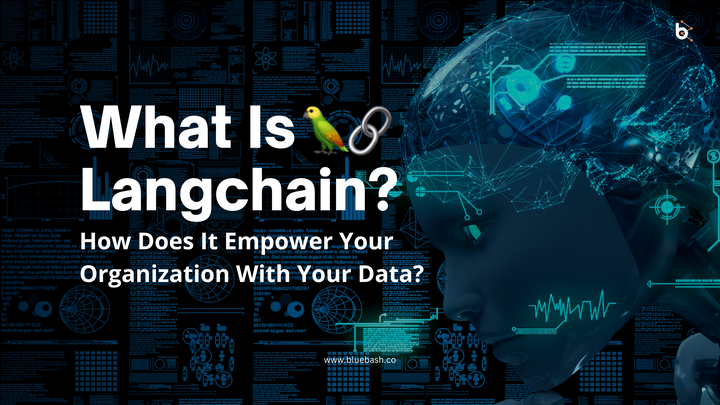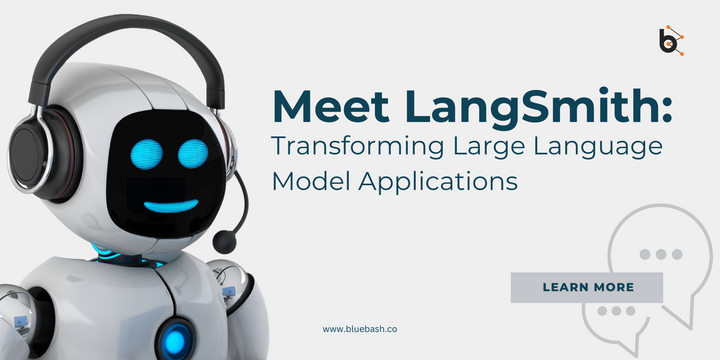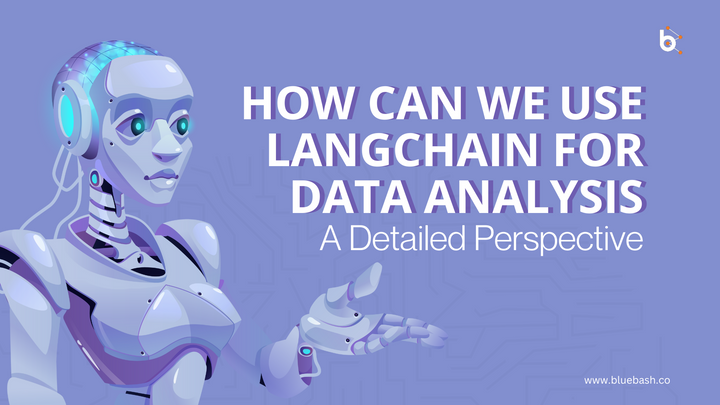How AI Agents Optimize Route Planning & Delivery Scheduling in Logistics?
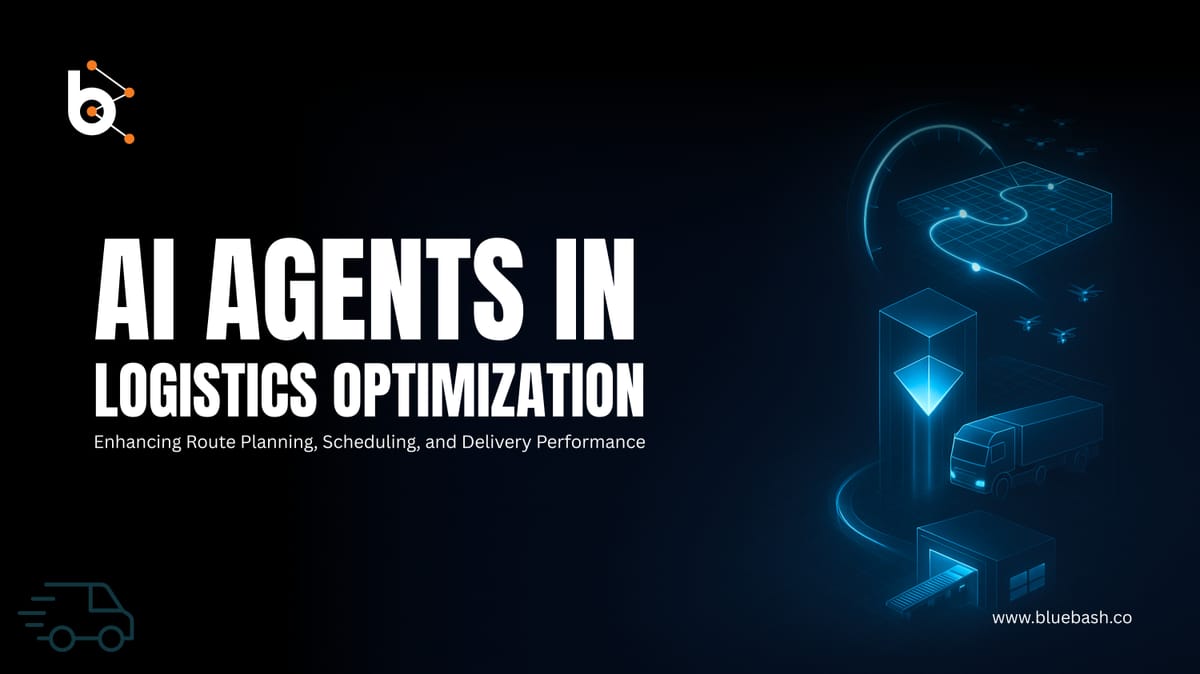
Quick Summary
AI Agents for Logistics are transforming how supply chains operate — from real-time route planning to automated delivery scheduling. By leveraging AI in route planning and AI-powered logistics optimization, businesses can cut delivery times, lower fuel costs, and boost operational efficiency. This blog explores how AI agents revolutionize the logistics industry, streamline last-mile delivery, and empower companies to achieve smarter, data-driven logistics performance.
Introduction: The Need for Smarter Logistics Operations
In today’s hyperconnected supply chain ecosystem, logistics operations face immense pressure to deliver faster, cheaper, and more sustainably. However, managing dynamic delivery networks with changing variables like traffic, weather, vehicle health, and customer demands is far beyond human capability.
That’s where AI agents for logistics step in. These intelligent systems integrate data from multiple sources and apply real-time decision-making to optimize routes, schedule deliveries, and improve overall supply chain efficiency. They don’t just react — they predict, learn, and adapt.
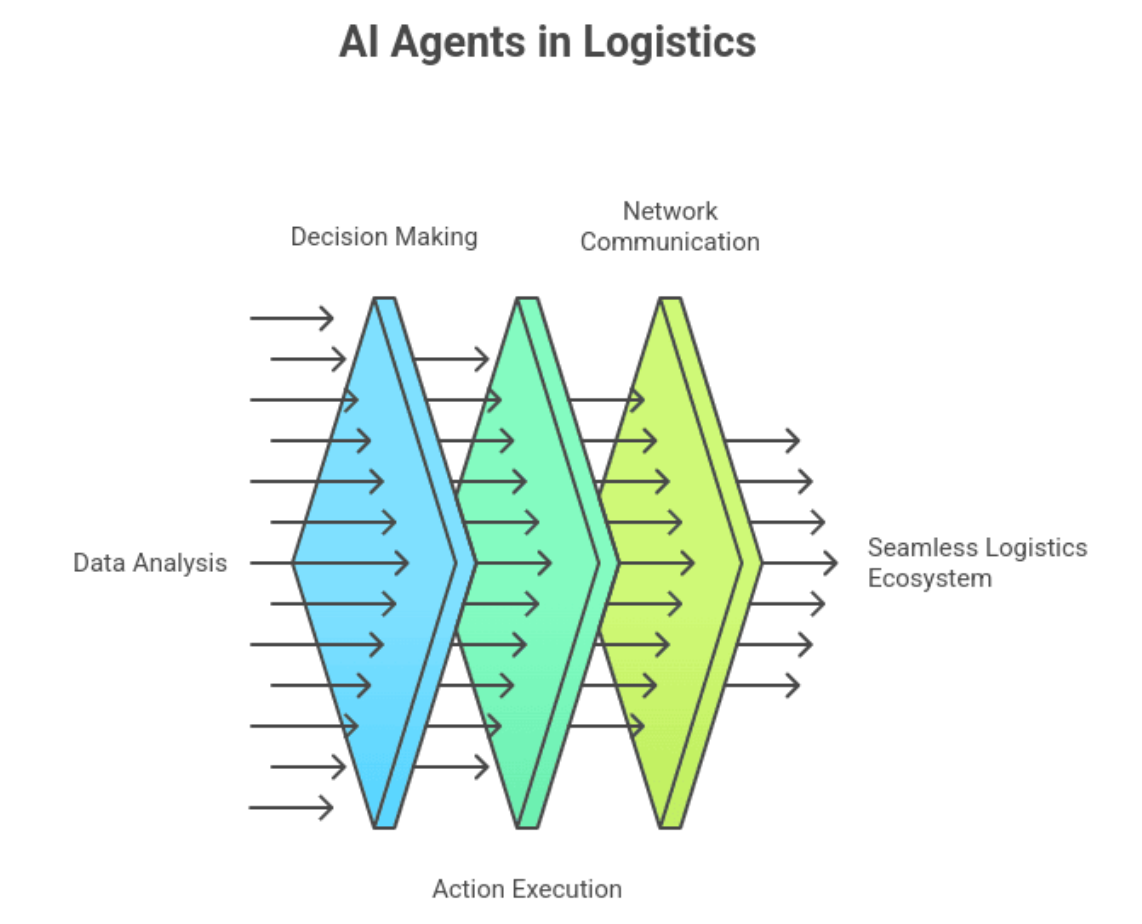
The result? A logistics operation that’s proactive, agile, and ready for the future.
Understanding AI Agents in Logistics
Before diving into their benefits, it’s essential to understand what AI agents actually do in logistics.
An AI agent is an autonomous system designed to analyze data, make decisions, and act toward achieving specific goals. In logistics, AI agents perform tasks such as:
- Planning optimal delivery routes
- Predicting demand and supply trends
- Automating scheduling and dispatch
- Managing inventory and warehouse movements
- Improving visibility across the supply chain
When connected through a logistics network, these agents communicate with each other — drivers, fleet management systems, and warehouse software — to create a seamless, self-optimizing ecosystem.
- Real-Time Route Optimization with AI Agents
The traditional route planning process often relies on static maps and human estimations. However, these methods can’t adapt quickly to real-world challenges like traffic congestion, road closures, or delivery urgency.
AI in route planning uses predictive algorithms and real-time data to adjust delivery routes continuously. The AI agent evaluates multiple factors simultaneously — such as vehicle capacity, delivery windows, driver availability, and fuel efficiency — to determine the best possible route for each delivery.
How AI Agents Improve Route Planning in Logistics
- Dynamic updates: AI agents instantly recalculate optimal routes based on live traffic, weather, or order changes.
- Time and cost savings: Reduces idle time and fuel consumption through intelligent path selection.
- Load balancing: Ensures equal workload distribution among delivery vehicles.
- Predictive rerouting: Detects possible disruptions and adjusts routes before delays occur.
For example, if a truck is stuck in traffic, the AI-powered logistics optimization system can automatically reroute other nearby vehicles to cover critical deliveries, ensuring minimal delays.
- Smarter Delivery Scheduling through AI Automation
Delivery scheduling involves coordinating drivers, vehicles, and customers — a process that becomes highly complex as scale increases. Manual scheduling often leads to inefficiencies, delayed deliveries, or overburdened drivers.
With AI in delivery scheduling, AI agents automate the entire process. They analyze delivery priorities, service-level agreements (SLAs), and route feasibility to schedule deliveries intelligently.
AI Agents’ Role in Delivery Scheduling
- Intelligent dispatching: Matches the right driver to the right route based on location, experience, and vehicle type.
- Time-slot optimization: Suggests delivery slots that maximize customer convenience and reduce route overlap.
- Predictive capacity management: Adjusts schedules automatically as demand changes.
- Integration with CRMs and ERPs: Ensures smooth coordination between logistics and customer support teams.
This creates a continuous feedback loop where AI agents learn from past delivery patterns to refine future scheduling decisions.
- AI Agents in Supply Chain Management
AI agents for supply chain management are the foundation of a modern logistics system. They connect various moving parts — from warehousing to distribution — ensuring end-to-end visibility and coordination.
Through machine learning and predictive analytics, AI agents forecast product demand, manage inventory flow, and streamline procurement. They also help supply chain leaders make proactive decisions instead of reacting to disruptions.
Key Benefits
- Reduced lead times: AI agents anticipate demand spikes and adjust stock levels accordingly.
- Enhanced visibility: Real-time data from multiple nodes allows for better tracking and transparency.
- Automated coordination: AI agents communicate across departments to synchronize operations.
- Cost reduction: Optimized resource allocation minimizes waste and excess labor.
By integrating AI agents into the supply chain, businesses achieve smoother logistics orchestration and resilient delivery networks that can adapt to market fluctuations.
- Last-Mile Delivery Optimization: The Competitive Edge
The last mile — the final leg of delivery to the customer — is the most challenging and costly stage in logistics. It accounts for nearly 50% of total shipping costs in many industries.
AI for last-mile delivery optimization focuses on minimizing delivery time while maximizing customer satisfaction. AI agents use real-time GPS data, order density analytics, and traffic conditions to cluster deliveries efficiently.
AI-Powered Last-Mile Delivery Features
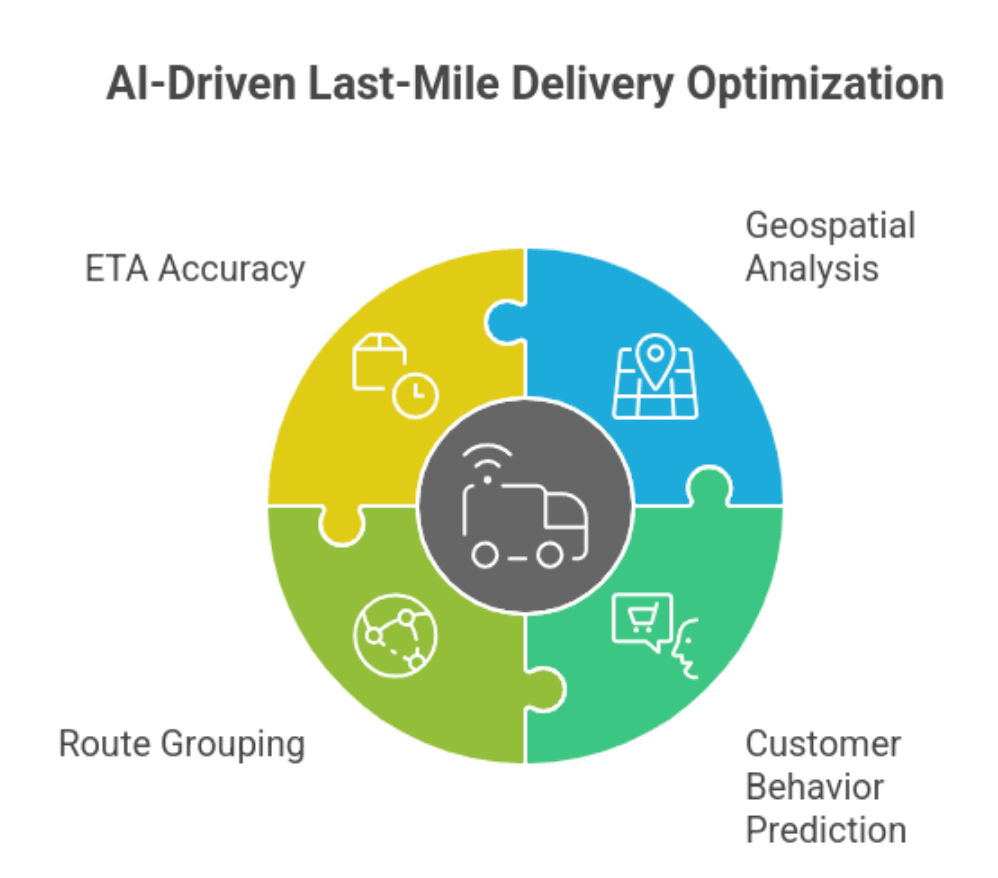
- Geospatial analysis: AI agents map optimal delivery clusters for faster drop-offs.
- Customer behavior prediction: Anticipates delivery preferences based on past interactions.
- Route grouping: Combines deliveries in nearby zones to cut redundant trips.
- ETA accuracy: Improves delivery time prediction and transparency for customers.
Companies like Amazon and FedEx already rely heavily on AI agents in logistics to enhance delivery reliability and speed — proving that AI isn’t just a tool but a strategic enabler for competitiveness.
- Predictive Analytics and Demand Forecasting
AI agents don’t just operate reactively; they also forecast future logistics trends using historical and contextual data. This is especially useful for predicting peak seasons, optimizing warehouse inventory, and planning vehicle utilization.
For instance, an AI-powered logistics optimization model can predict an increase in orders during festive seasons and proactively schedule additional fleet capacity to avoid delays.
Forecasting Applications
- Seasonal demand prediction
- Fleet and driver capacity planning
- Inventory stocking and replenishment
- Order batching optimization
By combining real-time logistics data with predictive algorithms, businesses can achieve proactive planning and minimize costly disruptions.
- Integration with IoT and Telematics
AI agents become even more powerful when combined with IoT sensors and vehicle telematics. These technologies provide real-time data on vehicle location, driver behavior, fuel usage, and mechanical health.
AI agents process this data to:
- Detect vehicle maintenance needs before breakdowns occur
- Ensure driver safety through behavior monitoring
- Optimize fuel consumption using performance analytics
When linked to the broader logistics management system, AI in route planning creates an intelligent feedback loop — improving both vehicle efficiency and sustainability.
- Sustainability and Green Logistics
Environmental sustainability is now a strategic priority for logistics providers. AI agents for logistics contribute to green initiatives by:
- Reducing fuel consumption through optimized routing
- Minimizing idle times and empty miles
- Supporting eco-friendly delivery methods like EV scheduling
- Helping organizations measure and offset carbon emissions
Through AI-powered logistics optimization, businesses can align operational efficiency with environmental responsibility — achieving sustainability without sacrificing speed or profit.
Key Benefits of AI Agents in Logistics
By now, it’s clear that AI agents aren’t just digital assistants — they’re the backbone of next-generation logistics management. Let’s summarize the core advantages these intelligent systems bring to logistics companies and supply chains:
- Enhanced Operational Efficiency
AI agents automate route planning, dispatching, and scheduling, eliminating manual errors and saving hours of operational time. Real-time decisions ensure deliveries are always optimized for speed and cost. - Predictive and Proactive Decision-Making
Instead of reacting to delays or disruptions, AI agents use predictive analytics to anticipate potential bottlenecks — from traffic congestion to equipment failure — and resolve them before they impact operations. - Cost Reduction Across the Supply Chain
With AI-powered logistics optimization, businesses can reduce fuel expenses, improve vehicle utilization, and minimize empty miles. The result: lower logistics costs and higher profitability. - Real-Time Visibility and Transparency
AI agents provide a live dashboard of delivery status, fleet movement, and warehouse inventory. This visibility helps managers make data-backed decisions and maintain accountability across the network. - Greater Customer Satisfaction
Accurate delivery time estimates, fewer delays, and flexible scheduling create a smoother end-customer experience — crucial in today’s on-demand delivery culture. - Sustainability and Resource Optimization
AI agents support eco-friendly logistics through fuel optimization, carbon tracking, and route clustering for electric vehicles — aligning operations with ESG goals and global sustainability standards.
In short, AI in route planning and delivery scheduling isn’t just a cost-saver — it’s a strategic investment in performance, customer trust, and long-term resilience.
Why Choose Bluebash for AI Logistics Optimization?
Building a robust, intelligent logistics system requires more than algorithms — it requires deep integration between data, process, and automation. That’s where Bluebash stands apart as an AI agents development company trusted by logistics, supply chain, and manufacturing leaders worldwide.
Here’s why logistics innovators partner with Bluebash:
- End-to-End AI Integration:
Bluebash designs and deploys AI agents that integrate seamlessly with existing TMS, WMS, ERP, and CRM systems to ensure uninterrupted operations and smooth scalability. - Custom AI Models for Route Optimization:
Our developers build intelligent models tailored to your delivery network, incorporating live traffic, demand trends, and vehicle telemetry for smarter, adaptive routing. - Real-Time Delivery Scheduling Agents:
We create dynamic scheduling systems that automate dispatch, load balancing, and SLA compliance — reducing delivery delays and boosting driver productivity. - IoT and Data Synergy:
Bluebash engineers combine telematics data with AI analytics to deliver actionable insights for fleet management, predictive maintenance, and sustainability tracking. - Continuous Learning and Optimization:
Every Bluebash-built AI agent improves over time using feedback loops and predictive learning, ensuring your logistics system stays future-ready.
By leveraging AI agents for logistics, Bluebash empowers businesses to reduce operational friction, deliver faster, and optimize routes with intelligence that learns, adapts, and scales.

The Future of AI in Logistics
The logistics industry is on the verge of full digital transformation. Over the next decade, AI agents for supply chain management will evolve from being decision-support tools to becoming autonomous logistics managers — capable of coordinating vehicles, predicting disruptions, and balancing sustainability with profitability.
Emerging technologies such as Large Action Models (LAMs) and multi-agent systems< will further enhance collaboration between AI agents, enabling cross-company and cross-border logistics optimization. Meanwhile, AI-driven last-mile delivery systems will soon operate autonomously, redefining speed and precision in e-commerce, manufacturing, and retail logistics.
Businesses that adopt AI early will set new industry benchmarks for agility, sustainability, and customer satisfaction.
Conclusion
In an age where speed defines success, AI agents for logistics have become indispensable for modern supply chains. From AI in route planning to AI in delivery scheduling, these intelligent systems bring automation, accuracy, and adaptability that human-driven processes simply cannot match. Logistics networks that once relied on manual control are now embracing a future of predictive intelligence — where deliveries arrive faster, costs are lower, and customer experiences shine.
At Bluebash, we help enterprises unlock this future by building AI-powered logistics optimization solutions tailored to their specific operations. Our expertise in AI agents development ensures every component — from route planning to last-mile delivery — operates seamlessly under one intelligent ecosystem.
If you’re ready to enhance your supply chain’s efficiency, sustainability, and speed with smart AI agents, partner with Bluebash — where innovation meets logistics intelligence.
FAQ's
- What are AI agents in logistics?
AI agents are autonomous systems that analyze data, make decisions, and act—optimizing routes, delivery scheduling, and fleet utilization. They learn from historical and real-time signals to keep operations adaptive and efficient. - How do AI agents improve route planning and delivery scheduling?
They ingest live traffic, weather, orders, SLAs, and vehicle capacity to auto-generate optimal routes and time slots. As conditions change, agents dynamically re-route and re-sequence stops to reduce fuel, miles, and delays. - Can AI agents integrate with my existing TMS/WMS/ERP?
Yes. Modern agents connect via APIs to TMS, WMS, ERP, CRM, telematics, and mapping stacks, creating a real-time feedback loop. This preserves your tools while unlocking AI-powered logistics optimization. - What KPIs should I expect to improve?
Typical wins include lower cost-per-drop, fewer empty miles, higher on-time delivery %, better ETA accuracy, and improved fleet utilization. Many teams also see faster planning cycles and higher customer satisfaction. - Is this viable for SMEs, and how fast is ROI?
Absolutely—AI in route planning scales from small fleets to enterprises. With quick integrations and pilot routes, teams often see measurable ROI in weeks through fuel savings, reduced overtime, and fewer failed deliveries.

